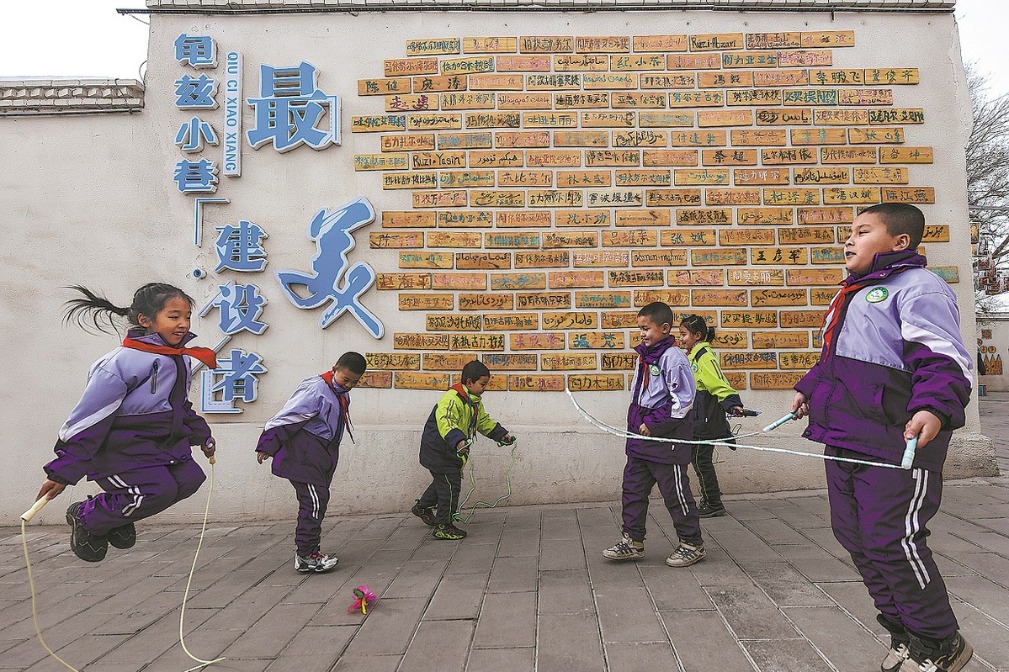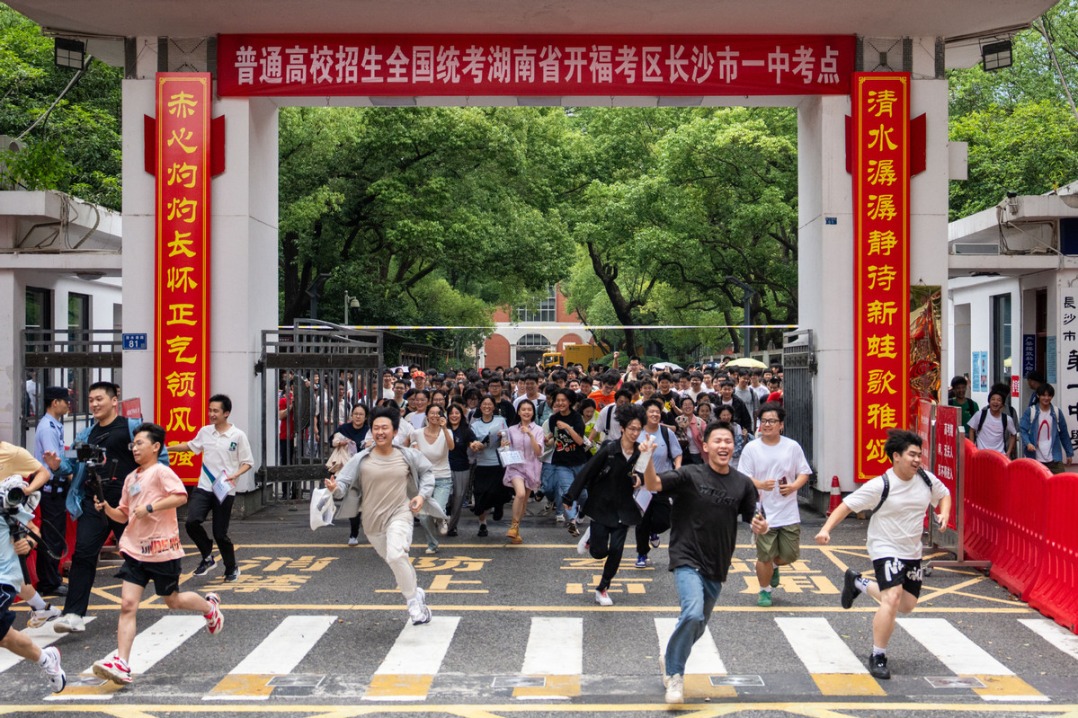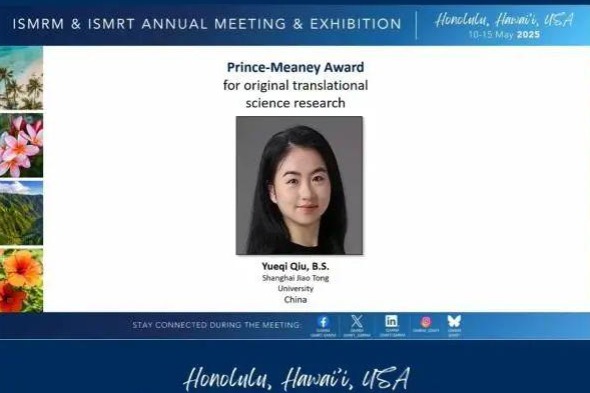Xi calls for deepening ties with ROK
Nations urged to uphold friendship, strive for mutual benefit, lift partnership to higher level

President Xi Jinping called on Tuesday for a healthy, stable and ever-deepening relationship between China and the Republic of Korea amid the changing and turbulent world, in order to benefit the people of both countries and bring greater certainty to the regional and global landscapes.
Xi made the remarks during a telephone conversation with ROK President Lee Jae-myung, who took office on June 4. Xi extended his congratulations once again to Lee on his election as ROK president.
Xi noted that China and the ROK are close neighbors that cannot be moved away from each other.
Over the past 33 years since the establishment of diplomatic ties, the two countries have transcended differences in ideology and social systems and actively advanced exchanges and cooperation across various fields, thus contributing to each other's success and achieving common development, he said.
Xi emphasized that a sound, stable and ever-deepening China-ROK relationship conforms to the trend of the times, serves the fundamental interests of the two peoples and contributes to regional and global peace, stability, development and prosperity.
He called on both countries to stay committed to the original aspiration of establishing their diplomatic ties, uphold good-neighborliness and friendship, strive for mutual benefit and win-win outcomes, and lift their strategic cooperative partnership to a higher level.
Xi underlined the need for both countries to strengthen exchanges at various levels and across various areas to enhance strategic mutual trust.
It is essential for China and the ROK to bolster bilateral cooperation and multilateral coordination to jointly defend multilateralism and free trade, and ensure stable and unimpeded global and regional industrial and supply chains, he said.
It is also important for them to deepen people-to-people and cultural exchanges to enhance mutual understanding and cement public support, in order to plant the seeds of China-ROK friendship deep in the hearts of the two peoples, he added.
To ensure the sound and steady growth of China-ROK relations, Xi said that both countries should respect each other's core interests and major concerns, and strive to keep bilateral relations on the right track.
Lee said he agrees with Xi's remarks, noting that the ROK and China are geographically close, with a long history of interaction and close economic, trade and cultural ties.
He expressed his admiration for China's development achievements under Xi's leadership.
Lee said he attaches great importance to the ROK-China relationship, and is willing to work with the Chinese side to deepen the development of good-neighborly and friendly relations between the two countries, improve and strengthen people-to-people bonds, and deliver more achievements in bilateral cooperation.
China and the ROK have made substantial progress in growing their relations over more than three decades, but shifts in Seoul's foreign policy and geopolitical tensions, among other factors, have pushed their relationship into headwinds.
In particular, the ROK's deployment of an advanced US missile defense system, the Terminal High Altitude Area Defense, or THAAD, in 2016, triggered strong opposition from China, as Beijing maintains that THAAD harms the strategic balance in the region, causing bilateral relations to worsen.
Under the administration of former ROK president Yoon Suk-yeol, Seoul joined in the US-led technological sanctions against China, leading to an escalation of diplomatic tensions.
Shortly after Lee was elected as the ROK president, Xi sent him a congratulatory message. Lee's taking office might provide an opportunity for China and the ROK to improve their relations, though challenges still remain due to various factors such as the ROK's domestic politics and its alliance with the US, observers said.
"Lee's government must prioritize rebuilding the partnership with China — a relationship that serves both Seoul's immediate economic needs and the region's long-term stability," said Gabriela Bernal, a scholar and political analyst based in Seoul.
As the ROK's largest trading partner, "China represents an economic lifeline that Seoul cannot afford to sacrifice", particularly as the administration of US President Donald Trump threatens to escalate tariffs on ROK goods, Bernal said in an opinion piece published on the website of the China Global Television Network.
Bilateral trade between China and the ROK reached $328.08 billion in 2024, up 5.6 percent year-on-year, according to the Foreign Ministry. China has maintained its position as the ROK's largest trading partner for 21 consecutive years, while the ROK regained its position as China's second-largest trading partner in 2024.
With regard to the prospects of China-ROK relations, Foreign Ministry spokesman Lin Jian said last week that China-ROK relations are propelled fundamentally by the two countries' common interests. "The relations do not target any third party, and should not be disrupted by any third-party factor," Lin said.





































